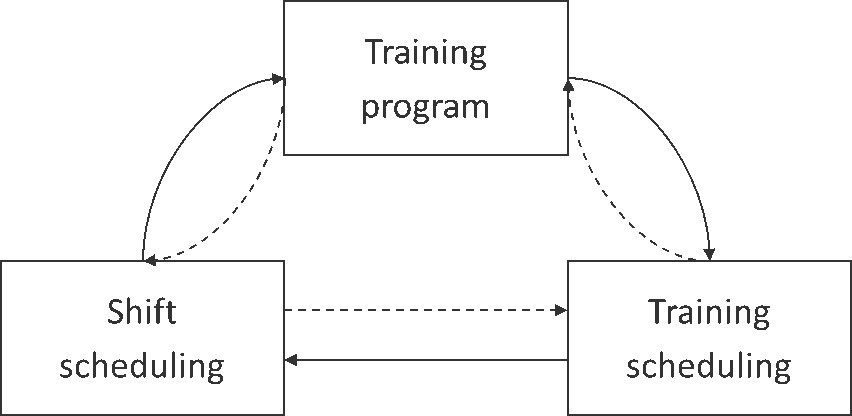Autor: Sebastian Kraul
There are currently almost 60,000 medical residents in one of 57 specialist training programs in Germany. The cost pressures of hospitals and the changing view of the medical profession regarding the work-life balance have led to recruitment problems and low employee satisfaction in many places. A promising approach to counter this problem is through objective and structured training planning.
My dissertation mainly deals with medical residents‘ strategic and tactical-operative training scheduling. In addition to relieving the medical staff currently responsible for the planning process, a focus was to increase the predictability of a structured training. This allows hospitals to increase the quality of their training and, consequently, their attractiveness to other hospitals. In addition, supervisors from different departments can better assess the knowledge of residents and thus keep the level of service, which is particularly important in hospitals, permanently high even when changing residents.
From the residents‘ point of view, a well-structured training planning, in addition to ensuring the program duration, enables a high degree of information. Residents are therefore no longer surprised by a short-term department change – they are currently informed one or two weeks in advance about a change – and have a direct insight into their training progress.
In addition to the mathematical modeling of the problems and the development of exact and heuristic solution approaches, our cooperation partner München rechts der Isar made a practice-oriented verification of the methods by cross-checking the actual training schedules in close coordination with the responsible planner. It showed that the developed methods led to results usable in practice. In particular, we were able to identify bottlenecks in the hospital’s surgical portfolio, which strongly impacts training. Finally, the interactions within and outside the training process were analyzed, especially regarding fairness, continuity, and uncertainty.
Additional information on the results can be found on my project page on Research Gate.

